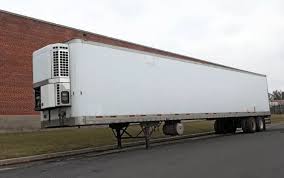
A reefer, short for refrigerated container or refrigerated trailer, is a specialized transportation unit used to transport perishable goods that require temperature-controlled environments. Here are the key features and uses of reefers:
- Temperature Control: Reefers are equipped with refrigeration units that can maintain specific temperature ranges, typically from below freezing to above freezing, depending on the cargo being transported. This capability allows them to transport perishable goods such as fruits, vegetables, dairy products, meat, seafood, pharmaceuticals, and other temperature-sensitive items.
- Insulation and Air Circulation: Reefers are insulated to maintain the desired temperature inside the container or trailer. They also have systems for air circulation to ensure consistent temperature distribution throughout the cargo space.
- Monitoring and Control: Modern reefers are equipped with sophisticated monitoring and control systems that allow operators to monitor temperature, humidity, and other conditions remotely. This ensures that the cargo remains within the specified temperature range during transport.
- Types: Reefers come in various forms, including refrigerated trucks (reefer trucks), refrigerated trailers (reefer trailers), and refrigerated shipping containers. The choice of reefer type depends on factors such as the volume of goods, transportation distance, and specific requirements of the cargo.
- Applications: Reefers are essential in industries such as food and beverage, pharmaceuticals, chemicals, and healthcare, where maintaining product quality and safety is critical. They are used for both domestic and international transportation of perishable goods.
- Regulations and Standards: Transporting goods in reefers involves compliance with stringent regulations and standards to ensure food safety, product integrity, and environmental protection. This includes proper maintenance of equipment, temperature monitoring records, and adherence to transportation laws.
- Cost Considerations: Operating reefers can be more expensive compared to standard dry vans or flatbeds due to the energy required to maintain temperature control. However, the ability to transport perishable goods over long distances without compromising quality often justifies the higher operational costs.
Overall, reefers play a crucial role in the global supply chain by enabling the safe and efficient transportation of perishable goods, ensuring that consumers receive fresh and high-quality products regardless of distance or climate conditions

